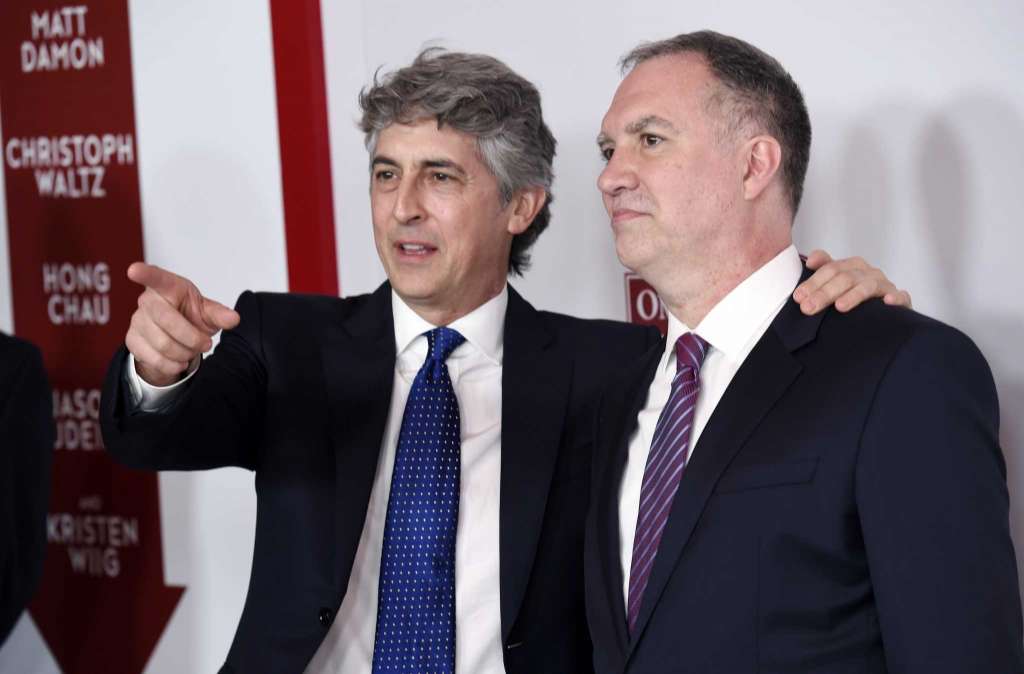Why Alexander Payne Avoids Writing for Specific Actors
This winter in Boston, Alexander Payne reconnected with Sideways star Paul Giamatti to film Payne’s newest dark comedy, The Holdovers. It’s been a happy reunion for these two, who haven’t worked together on a project since Sideways. That film was a critical success and box office hit, and it earned Payne an Academy Award for Best Adapted Screenplay in 2005. “Ever since we made Sideways together 18 years ago, we have wanted to make a movie together again. But it never worked out,” says Payne. “Now, it finally worked out, and this role in The Holdovers was tailor-made for him. It was written with Paul in mind.”
That’s rare for Payne, who says he prefers to start his screenwriting process with a blank slate of potential stars. “It is always what is the requirement of the unique characters in this individual screenplay,” explains the 61-year-old. “In general, I have avoided writing for specific actors.”
Alexander Payne on Actors Bringing His Roles to Life
“What comes first in my thinking is always who is the most appropriate for the part,” explains Payne. “Appropriate and available, actually. I always think, ‘Gosh, I’d love to work with this or that actor again; we had such a good time.’ But then maybe it turns out that he or she is not quite the right fit.”
Scheduling conflicts can also ruin any filmmaker’s well-thought-out plans. “You don’t know if they can do it, or if they will be available to do it, or if you can even get them,” shares Alexander Payne. “Nor do I want any parts really tailor-made, like as a vehicle, for someone. You want the actors to be playing unique individuals, not someone from their repertoire.”
Alexander Payne and Paul Giamatti: A Powerful Pair
However, when it comes to Giamatti, Payne was willing to break his own rules. “With The Holdovers, I so wanted to work with Paul again that I forced it; I knew this was the perfect part for him.”
In Payne’s new film project, Giamatti plays Paul Hunham, a cantankerous, hated prep school professor at the fictitious Barton Academy. The plot takes place throughout a winter break in 1970, where Giamatti’s character is stuck supervising students staying on campus.
“I called Paul, told him the idea, and he jumped at it,” says Payne. Giamatti’s enthusiasm stems from the fact that he says making Sideways “was a gorgeous experience. It was so much fun and joyous. I think the movie feels that way because we were just making a movie for the love of making a movie,” says Giamatti. “So much of that came from Alexander and his simple joy of being with actors and crew.”
Giamatti considers the time he spent making Payne’s dark comedy to be a career highlight. “I felt like if I could not act again for some reason, my acting life would have been fulfilled having done this movie because it was such a purely pleasurable experience,” he explains. “Alexander is a true filmmaker, and that is what makes him special.”
The Future Looks Bright for the Multitasking Moviemaker
While filming The Holdovers, Payne says, “I have two or three other scripts percolating, that I am working on with other writers and giving them notes, or chipping away at it myself.”
Payne’s first feature film, Citizen Ruth, debuted in 1996. Since then, he’s proven to have a knack for telling human stories with a darkly humorous twist. “I want to move quickly from film to film,” he says. “Getting the right screenplay is the hard part. On the one hand, I want to be making a film every single day of my life, and on the other hand, I want to speak only when I have something to say.”
Part of what makes Payne’s work so meticulous is his willingness to learn and observe the wisdom that comes from decades of moviemaking. “And with experience comes the knowledge,” notes Alexander Payne. “And I see in myself, I can more comfortably, confidently identify problems and find a solution. So there is an efficiency now to my work, which I am enjoying.”
Fans of his dark comedies, which include Election, The Descendents, and Nebraska, have reason to celebrate since, according to Payne, the best is yet to come. “I have been out of film school for 30 years, and I still feel like I am just getting started,” he says.

